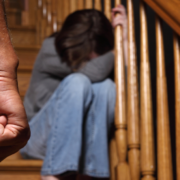Co-parenting after splitting up can be challenging, even when both sides are well-meaning and cooperative. It’s a lot more difficult to navigate co-parenting when there are signs of dangerous parenting on the side of your ex-partner.
Courts will always prioritize well-being while protecting children from high-conflict co-parenting. Consider the following when creating a safety plan for co-parenting with a risky ex.
What If You’re Concerned for Your Child’s Safety When They’re With Your Ex?
As a rule, family law courts believe it’s in the child’s best interests to spend time with both parents. However, some signs might tell you that your ex is unsafe for your kids.
Certain things your children do or say after spending time with the other parent could make you believe it’s dangerous for them to stay with your ex unsupervised. In this scenario, stay vigilant and consult a custody lawyer who knows how to navigate co-parenting and dangerous parenting.
Red Flags of Dangerous Co-Parenting Behavior
If your child comes back from their other parent with bruises or other signs of physical harm or tells you that your ex has abused them, you’ll want to take immediate action. However, not all abuse is obvious, especially if your child is too young to describe what happened.
Neglect and lack of supervision are also a form of abuse. For example, maybe your child often returns underfed or dirty from your ex’s house, or you discover that your ex neglects to ensure they take their prescription medications. You may also suspect your co-parent lets your child engage in risky or age-inappropriate activities without supervision.
Finally, you may feel concerned about your ex-partner’s unaddressed problem of alcohol or substance abuse in the context of co-parenting.
You Must Still Obey Court Orders
While courts focus on prioritizing child safety in co-parenting plans, they expect you to comply with the proper procedures and present solid proof of your co-parent’s risky behavior.
A seasoned lawyer can help you look into legal options for limiting contact with a dangerous parent. However, you can’t simply withhold parenting time based on suspicion. You could get into serious trouble, and the court may reduce your parenting time.
Document Each Incident of Potentially Dangerous Co-Parenting Behavior
Did your child tell you their other parent pushed, shoved, or slapped them? Write it down and date it. Did your ex-partner send you a text message or voicemail admitting they let the children stay outside until late unsupervised, despite your insistence to the contrary? Save this message.
Keep a personal record of all your ex-partner’s actions that are abusive or could potentially endanger your kids. Then, consult a family lawyer for reliable advice on keeping your children safe.
Dealing With an Unsafe Co-Parent? Call Karen Ann Ulmer, P.C.
Do you believe your ex is an unsafe co-parent? The skilled divorce and custody lawyers of Karen Ann Ulmer, P.C., can help you handle co-parenting and dangerous parenting, including co-parenting with a narcissist or abusive ex. Call us at (866) 349-4907 or schedule a consultation online.






